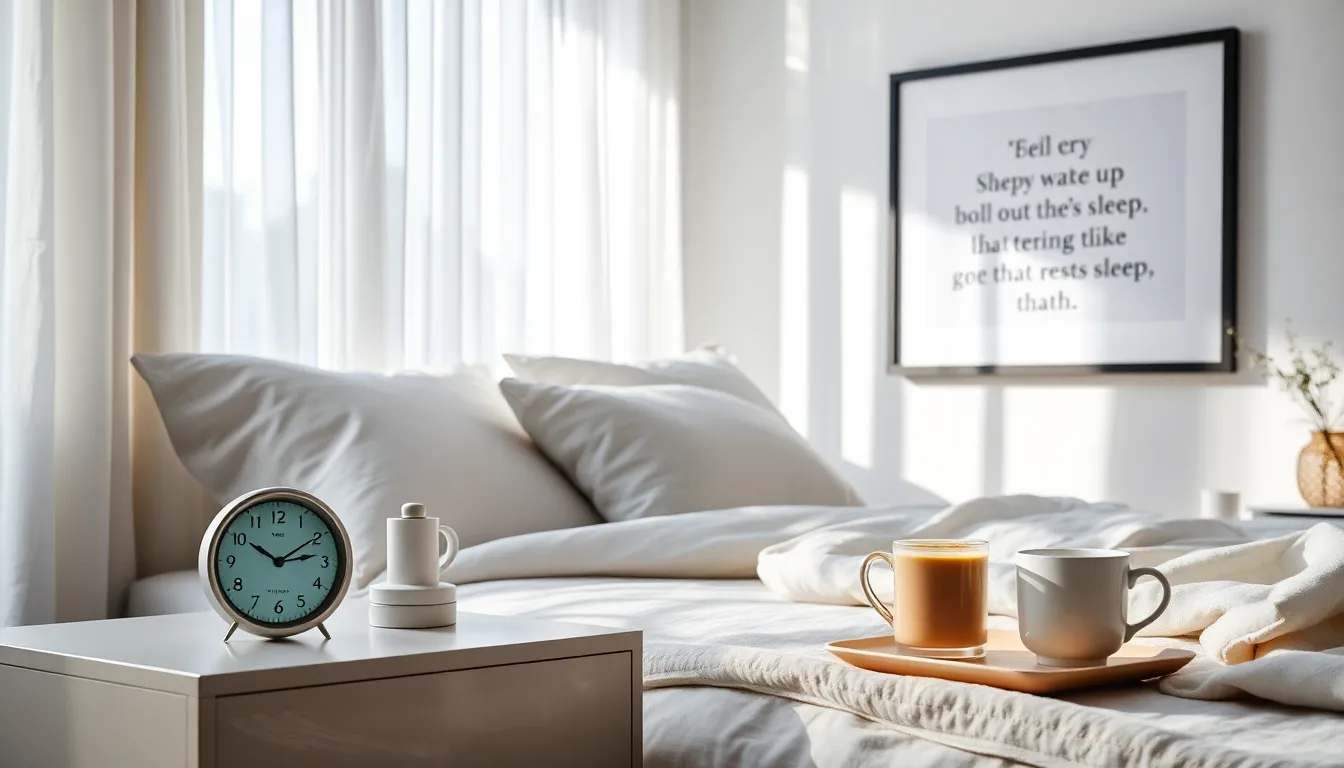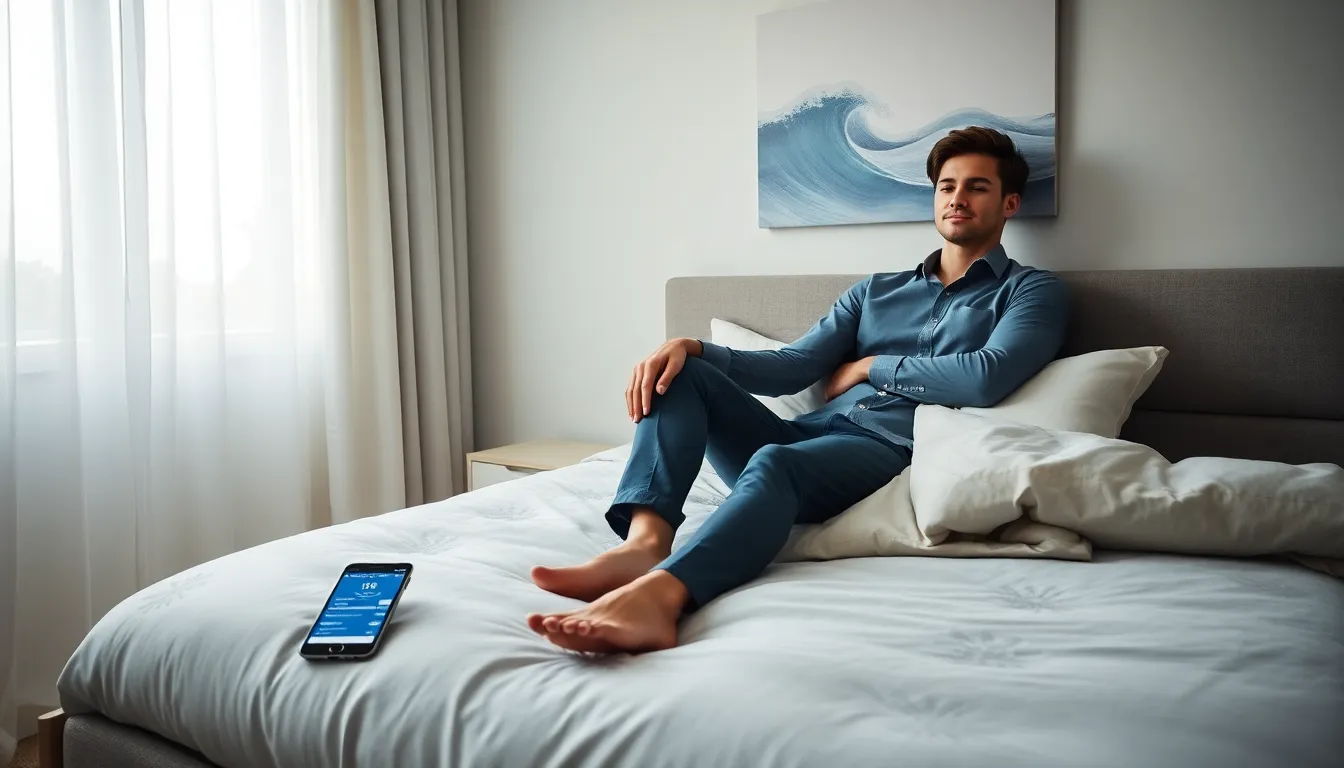In a world where sleep often takes a backseat to work, social outings, and binge-watching the latest series, one question stands out: how did you sleep? The importance of a good night’s rest shouldn’t be underestimated, yet many people treat sleep as a luxury rather than a necessity. After all, sleep isn’t just about recharging: it’s about improving overall well-being. Let’s jump into the essentials of sleep quality, unearthing why that precious time under the covers is so darn essential, and maybe have a chuckle or two along the way when you realize you’re not the only one struggling with it.
Table of Contents
ToggleThe Importance of Sleep

Sleep is not merely a pause from the hustle and bustle of daily life: it serves as the backbone of physical, mental, and emotional health. During deep sleep, the body repairs and regenerates tissues, builds bone and muscle, and bolsters the immune system. Not getting enough quality sleep can lead to a host of issues, including increased stress levels and decreased cognitive function. Research indicates that good sleep quality can even contribute to longevity, who wouldn’t want that? On the flip side, poor sleep can lead to chronic conditions such as obesity, diabetes, and heart disease. So, when someone asks how you slept, maybe they’re inquiring about your health more than your bedtime stories.
The funny thing is, in today’s fast-paced world, sleep has often become a punchline rather than a priority. Sleep deprivation may even have folks jokingly claiming they can survive on caffeine alone. But, even though the humor, it’s crucial to acknowledge that a lack of sleep can severely impact productivity, mood, and even interactions with others.
Factors That Affect Sleep Quality
A myriad of factors can influence both the quality and the quantity of sleep. Stress often tops the list. If she’s thinking about deadlines or bills while trying to fall asleep, it’s no wonder she tosses and turns. Similarly, an excessive intake of caffeine or alcohol can wreak havoc on sleep cycles. While a late-night coffee may seem harmless, its effects can linger, slowly crippling that much-needed rest.
Let’s not forget about diet. Eating heavy meals right before bed commonly leads to uncomfortable nights. Also, irregular sleep schedules can throw the body into a tailspin, causing confusion in its internal clock. Then, there’s one major component, technology. The blue light emitted from screens has a notorious reputation for disrupting melatonin production, leaving many staring at the ceiling, wishing for sleep.
If they haven’t connected these dots yet, it could be time for some serious self-reflection about the habits leading to sleepless nights.
How to Assess Your Sleep Patterns
Understanding one’s sleep patterns can feel like trying to interpret hieroglyphs, confusing and elusive. But, establishing a clearer picture can be achieved through a few practical steps. Journaling sleep habits, including bedtime, wake-up time, and duration, can be eye-opening. Over time, this data paints a vivid picture of whether one is getting quality shut-eye or merely burning the midnight oil.
Apps and wearable devices like fitness trackers are fantastic modern tools for assessing sleep patterns. These gadgets jump into metrics such as sleep duration and cycles, providing useful insights that can guide improvements. If he notices a pattern of restless nights or fewer hours than necessary, it’s time to take action.
But let’s remember: not every restless night equates to sleep deprivation or sleep disorders, so assessing the long-term range is essential before jumping to conclusions.
Improving Your Sleep Quality
Improving sleep quality can seem daunting, but small tweaks can make a substantial difference over time. One key area is the identification of common sleep disorders, ranging from insomnia to sleep apnea.
Common Sleep Disorders
Understanding these disorders is the first step toward managing them. Insomnia, characterized by difficulty falling or staying asleep, can affect energy levels and mood. Meanwhile, sleep apnea involves breathing interruptions, leading to repeatedly waking during the night.
Techniques for Better Sleep Hygiene
Establishing a bedtime routine is a powerful technique for improving sleep hygiene. This can mean turning off screens an hour before bed, reading, or indulging in relaxation techniques like meditation or deep breathing exercises. Another critical factor involves the timing of meals: eating well in advance of sleep can help mitigate discomfort.
The Role of Environment in Sleep Quality
Creating a conducive sleep environment is equally important. This means ensuring a dark, quiet, and cool room. The mattress and pillows should provide support while remaining comfortable. If he finds himself waking up sore, it may be time to reevaluate bedding choices.
Sleep Tracking Tools and Apps
To truly understand how one sleeps, utilizing sleep tracking tools or apps can be beneficial. These technologies analyze patterns and provide feedback on sleep quality. Users can receive insights about their sleep cycles that could help in reviewing and adjusting habits. Many apps offer features like reminders to establish a consistent bedtime or meditative soundscapes to improve sleep onset.
Wearable trackers monitor heart rates and sleep stages, providing detailed data to aid in enhancements. Knowing when one enters REM sleep, for example, can highlight patterns that might need adjustment. There’s nothing amusing about sleep deprivation, but having the right tools on hand can lead to some rather enlightening realizations.



